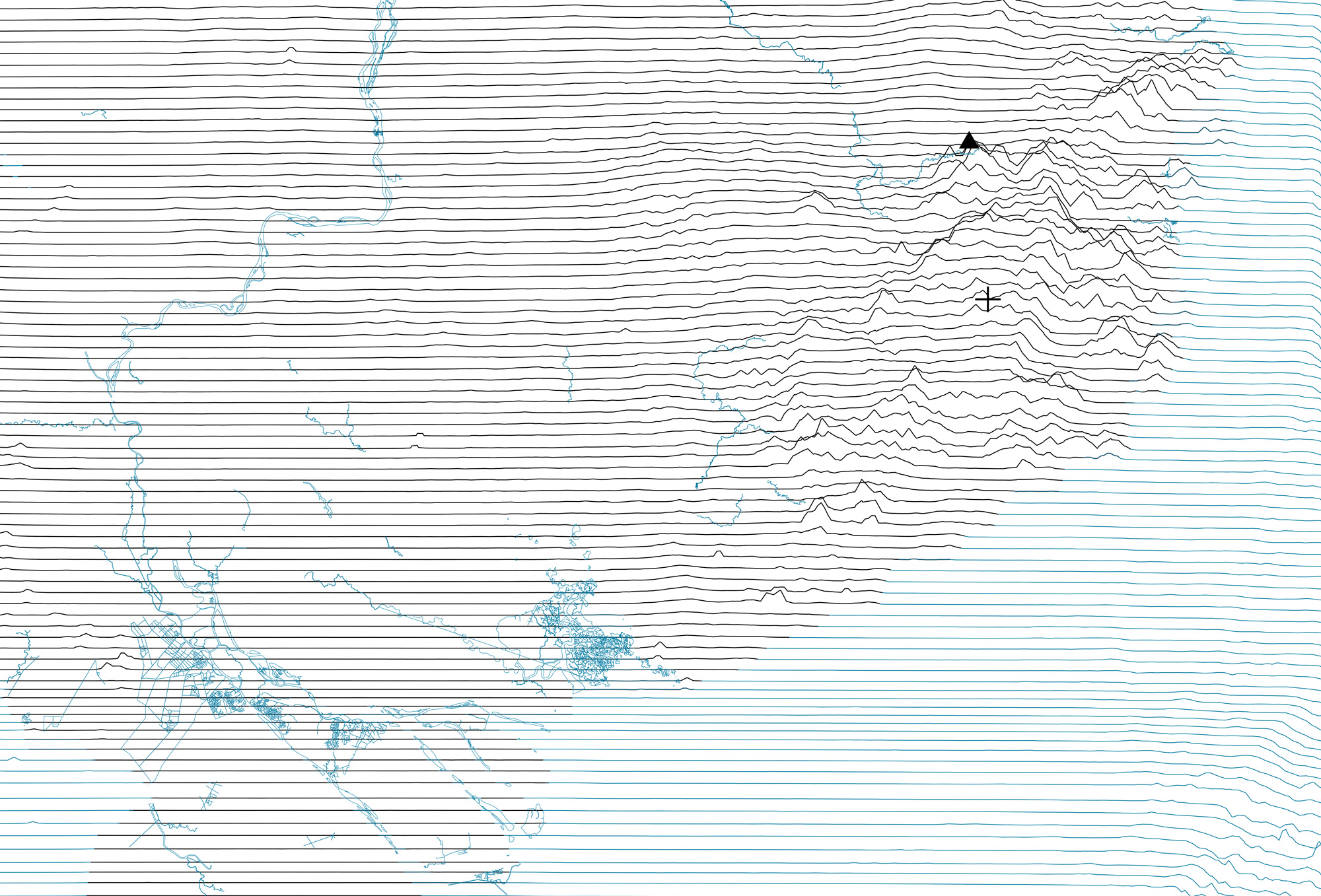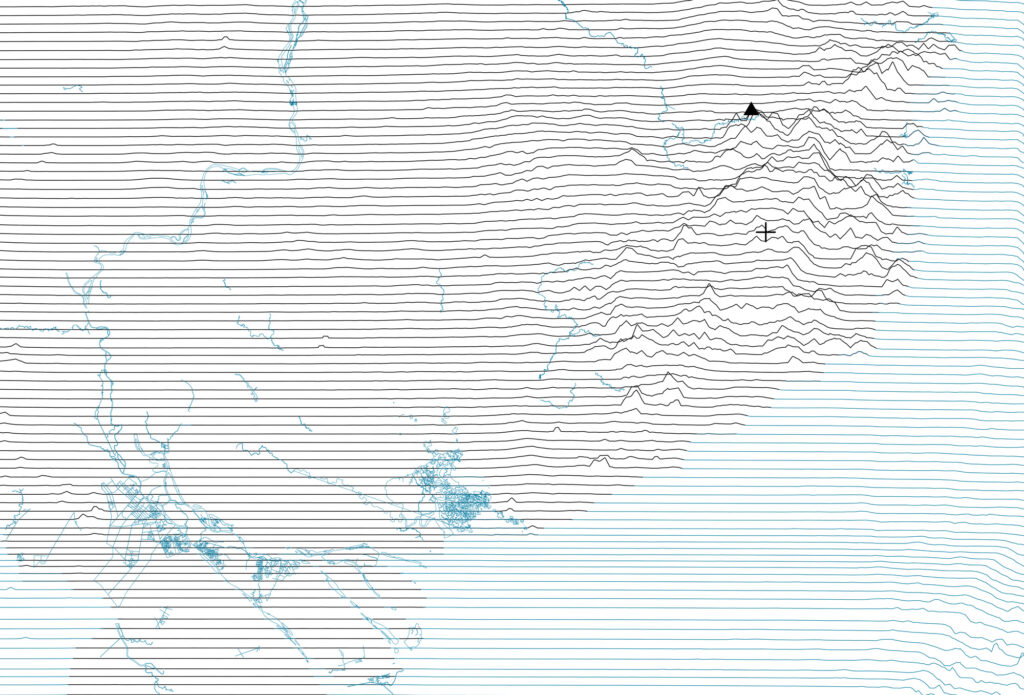About this Event
The Sinographic compound (山水), denoting “mountain and water,” is widely shared across many Asian contexts, with different regional traditions and approaches. As shanshui in China, sansui in Japan, and sansu in Korea, the term has historically referred to creative artistic and philosophical visions of the natural world, combining the vital elements of a fully dynamic landscape. With climate change underway, what contemporary elements and dimensions of nature are necessary for designing and building sustainable spaces for human habitation and flourishing? Contemporary landscape architects from Northeast and Southeast Asia are trying to answer this question by rethinking the relation between social and natural forms. Their aim is to design habitable futures at the intersection of the two.
This conference will feature leading landscape architects and scholars from China, Japan, Korea, Malaysia, Singapore, and Thailand, as well as Australia and the US, to discuss the perspectives, histories, politics, and most compelling projects of sustainable design in the Asian context.
This conference accompanies the exhibition Designers of Mountain and Water, which will be on display in the Druker Design Gallery from January 20 to May 15, 2026. Curated by Jungyoon Kim, Associate Professor in Practice of Landscape Architecture at the GSD, the exhibition features more than 55 works of landscape architecture by 23 practices in Asia.
Livestream
A livestream window will be added here on the day of the event.
Schedule
All events will be held in Gund Hall’s Piper Auditorium unless otherwise noted.
Thursday, February 5, 2026
6:30 p.m. – 7:20 p.m.
Opening Remarks
- Sarah M. Whiting, Dean and Josep Lluís Sert Professor of Architecture, Harvard GSD
- Gary Hilderbrand, Chair of the Department of Landscape Architecture, Peter Louis Hornbeck Professor in Practice of Landscape Architecture, Harvard GSD
- Jungyoon Kim, Associate Professor in Practice of Landscape Architecture, GSD, Harvard University; Founding Principal, PARKKIM, Seoul & Boston
- Nicholas Harkness, Director, Korea Institute, Modern Korean Economy and Society Professor of Anthropology, Harvard University
7:20 p.m. – 8:00 p.m.
Keynote | Marisa Chearavanont
Marisa Chearavanont, Founder and Chairman of Khao Yai Art Forest and Bangkok Kunsthalle, Chef Cares Foundation; Special Advisor to Senior Chairman of CP Group
8:00 p.m. – 9:30 p.m.
Druker Design Gallery
Reception
Friday, February 6, 2026
9:00 a.m. – 10:30 a.m.
Panel | Cultures of Nature
SPEAKERS
- Eugene Wang, Abby Aldrich Rockefeller Professor of Asian Art; Founding Director of Harvard FAS CAMLab, Harvard University
- Jinah Kim, George P. Bickford Professor of Indian and South Asian Art and Professor of South Asian Studies, Harvard University
- Yukio Lippit, Jeffrey T. Chambers and Andrea Okamura Professor of History of Art and Architecture, Harvard University
- Sun Joo Kim, Harvard-Yenching Professor of Korean History, Harvard University
MODERATOR
Nicholas Harkness, Director, Korea Institute, Modern Korean Economy and Society Professor of Anthropology, Harvard University
10:45 a.m. – 12:10 p.m.
Panel | The Work of Mountain and Water
SPEAKERS
- Heike Rahmann, Senior Lecturer, RMIT University, Melbourne, Australia, and Director of the Technology and Innovation Working Program, IFLA World
- Youngmin Kim, Professor of Landscape Architecture, University of Seoul, Republic of Korea.
- Kotchakorn Voraakhom, Chairwoman of the Climate Change Working Group (IFLA World), CEO and Founder of Landprocess, Bangkok, Thailand
MODERATOR
Jillian Walliss, Associate Professor in Landscape Architecture, Melbourne School of Design, University of Melbourne, Australia, and Co-Director of the Ethics, Equity and Social Justice Group, IFLA World
1:30 p.m. – 3:00 p.m.
Panel | Aesthetics of Sustainability
SPEAKERS
- Myeong-Jun Lee, Associate Professor, Hankyong National University, Republic of Korea
- Yu Han Goh, Director, Salad Dressing, Malaysia/Singapore
- Chisa Toda, Partner, studio on site, Tokyo, Japan
MODERATOR
Jungyoon Kim, Associate Professor in Practice of Landscape Architecture, GSD, Harvard University; Founding Principal, PARKKIM, Seoul & Boston
3:15 p.m. – 4:40 p.m.
Panel | Beyond Sansu, Sansui, Shanshui
SPEAKERS
- Dong Wang, Head of the Ecological City Studio, Turenscape, Beijing, China
- Shunsaku Miyagi, Founding Partner of PLACEMEDIA, Tokyo and Kyoto, Japan
- Yoonjin Park, Founding Principal, PARKKIM, Seoul and Boston
MODERATOR
Gary Hilderbrand, Chair of the Department of Landscape Architecture, Peter Louis Hornbeck Professor in Practice of Landscape Architecture, Harvard University; Founding principal of Reed Hilderbrand
4:40 p.m. – 5:10 p.m.
Closing Remarks
Keynote
Marisa Chearavanont is a philanthropist, social entrepreneur, and cultural patron whose leadership spans contemporary art, gastronomy, education, and innovation. She is the founder and chairwoman of Khao Yai Art Forest and Bangkok Kunsthalle, pioneering a new approach to contemporary art as a catalyst for cultural and ecological renewal, community engagement, and human well-being.
A dedicated supporter of the arts, Mrs. Chearavanont’s long-standing vision is to advance Thai contemporary art on the global stage and to champion art as a medium of healing. She has contributed her expertise to advisory councils of leading institutions, including Tate Modern, the New Museum, the DIA Art Foundation, M+ Museum, and the Bangkok Art and Culture Centre. Mrs. Chearavanont previously founded and continues to chair the BUILD Foundation, which provides educational access and infrastructure for underserved communities, and the Chef Cares Foundation, which promotes compassion through gastronomy. She also serves as Special Advisor to the Senior Chairman of the Charoen Pokphand Group.
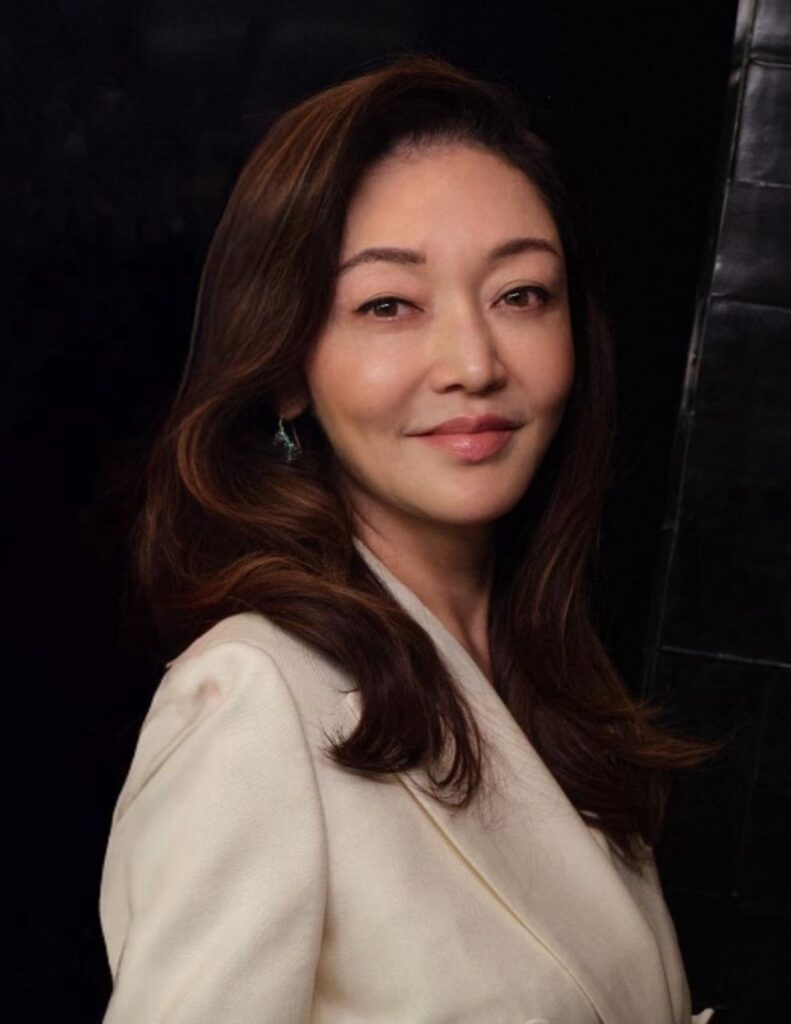
For the panel discussion following her keynote, Marisa will be joined on stage by Poonperm “Perm” Paitayawat. Perm is a cultural writer and creative strategist whose work bridges food, art, sustainability, and community development. With postgraduate training in Shakespearean literature, he brings a strong narrative and critical perspective to multidisciplinary creative practice. Perm became known through social media for his extensive gastronomic travels and was featured in the documentary Foodies: The Culinary Jetset (2014). He has written and edited for publications including The Guardian and Fool Magazine. His work later expanded into cross-disciplinary and experiential projects, including creative and curatorial roles with Fruitfull and Wonderfruit. He currently serves as Vice President of Art Forest Foundation and Vice President of Chef Cares Foundation, and oversees the creative and philanthropic development of projects led by Marisa Chearavanont, supporting cultural stewardship, social impact, and long-term sustainable value.
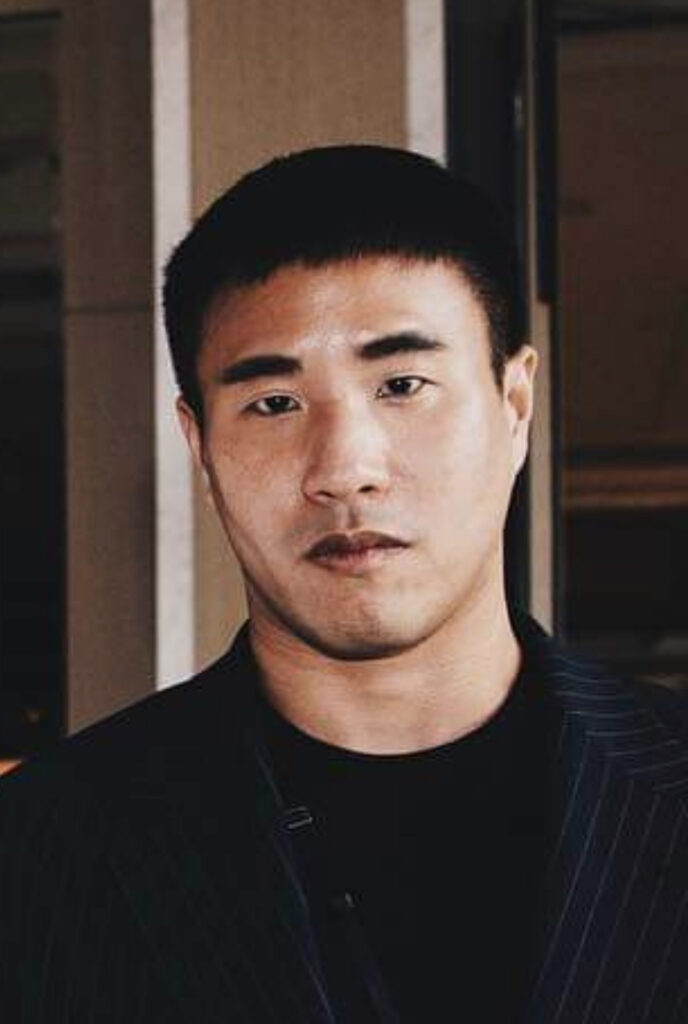
Speakers
Cultures of Nature
9:00 a.m. – 10:30 a.m., Friday, February 6, 2026, Piper Auditorium
Speakers

Eugene Wang is the Abby Aldrich Rockefeller Professor of Asian Art at Harvard University, where he holds positions in the History of Art and Architecture, Archaeology, Study of Religion, TDM (Theater, Dance, and Medium), and Inner Asia and Altaic Studies. A 2005 Guggenheim Fellow, he is the art history editor of the Encyclopedia of Buddhism (2004). His research covers Asian Buddhist art as well as Chinese art history. His book, Shaping the Lotus Sutra: Buddhist Visual Culture in Medieval China (2005), on the art of world building, received the Sakamoto Nichijin Academic Achievement Award from Japan. He was recently twice recognized by the FAS Dean’s Fund for Promising Scholarship. He is the founding director of Harvard CAMLab dedicated to turning cultural-historical knowledge into sensorial experience. The exhibition he curated in 2024, Mawangdui: Art of Life, at the Hunan Museum, designed and produced by his team, won the2025 iF Design Award from Germany.
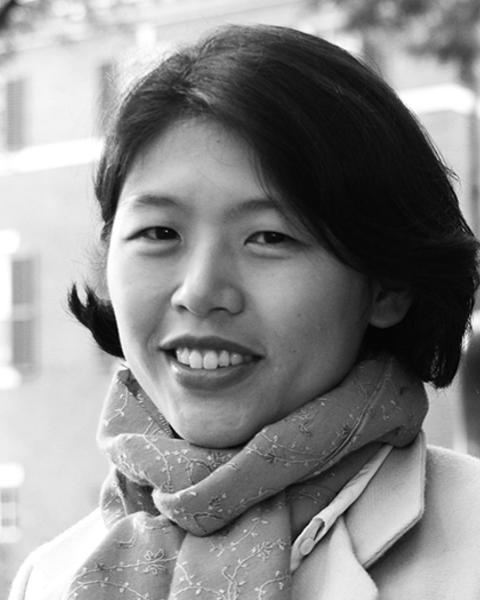
Jinah Kim is the George P. Bickford Professor of Indian and South Asian Art and Professor of South Asian Studies at Harvard University. She is the author of Receptacle of the Sacred: Illustrated Manuscripts and the Buddhist book cult in South Asia (University of California Press, 2013), which earned the 2015 AAS Bernard Cohn Prize honorable mention, and Garland of Visions: Color, Tantra and a Material History of Indian Painting (University of California Press, 2021). In addition to her academic research, she leads a digital humanities project on color and pigments in Asian painting,” Mapping Color in History ,” which serves as an interdisciplinary research platform for conservation specialists as well as anyone interested in material aspects of color, with a searchable, open database for historical research on pigments. She co-curated an NEH-funded exhibition on Nepalese Buddhist Ritual art and co-edited its catalog, Dharma and Puṇya: Buddhist ritual art of Nepal (Hotei, 2019). In her role as the Johnson Kulukundis faculty director in the arts at the Radcliffe Institute at Harvard (2022-2025), she curated an exhibition on climate change, Water Stories: River Goddesses, Ancestral Rites, and Climate Crisis , held on the Radcliffe campus (Sep 18-Dec 16, 2023).

Yukio Lippit is Professor of History of Art and Architecture, Harvard University. Lippit specializes in the history of Japanese art. His book, Painting of the Realm: The Kano House of Painters in Seventeenth-Century Japan (2012), was awarded the Charles Rufus Morey Book Award by the College Art Association and the John Whitney Hall Book Prize by the Association of Asian Studies. Other books include Sesson Shukei: A Zen Monk-Painter in Medieval Japan (2022), The Artist in Edo (2018), Irresolution: The Paintings of Yoshiaki Shimizu (2017), Japanese Zen Buddhism and the Impossible Painting (2016), Sōtatsu: Making Waves (2016), The Thinking Hand: Tools and Traditions of the Japanese Carpenter (2013), Kenzo Tange: Architecture for the World (2012), Colorful Realm: Japanese Bird-and-Flower Paintings by Itō Jakuchū (1716-1800) (2012), and Awakenings: Zen Figure Painting in Medieval Japan (2007).
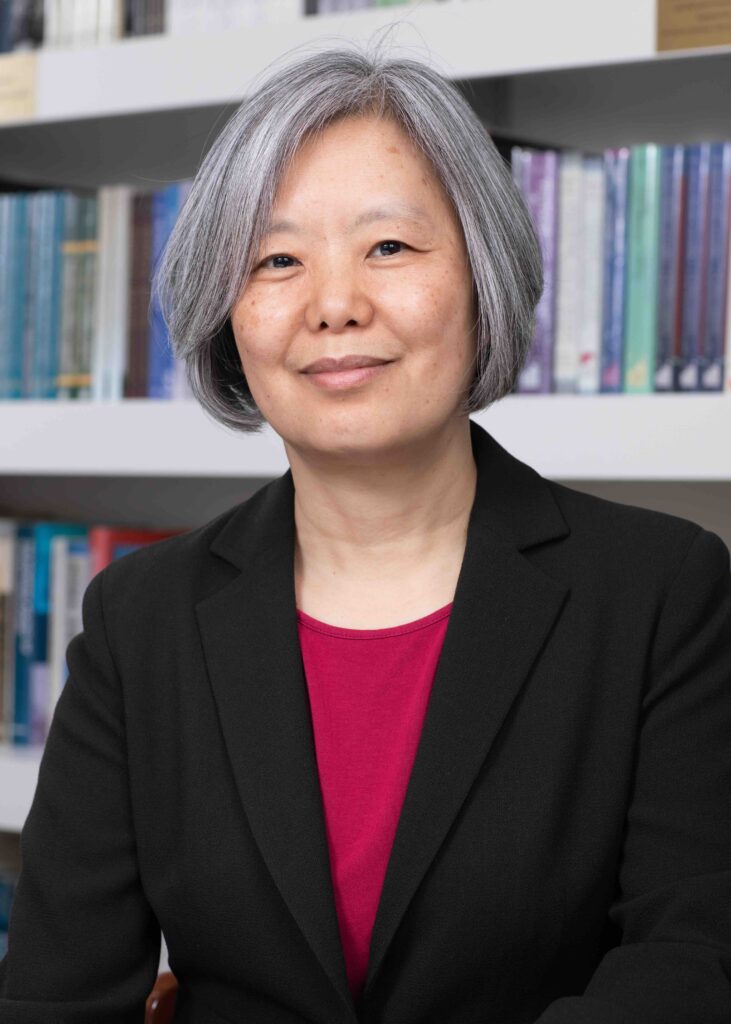
Sun Joo Kim is the Harvard-Yenching Professor of Korean History in the Department of East Asian Languages and Civilizations at Harvard University. She received a BA in history from Yonsei University in Korea, as well as an MA and Ph.D. in history from the University of Washington. Her research focuses on the socio-cultural history of Chosŏn Korea (1392–1910), resulting in publications on topics including social movements, regional identity, kinship and genealogy, slavery, and legal history. She is also dedicated to making underused yet illuminating primary sources available in English through conventional and digital publishing. She has overseen several projects, including the Harvard Korean Alumni Biographies Project , the Korean Treasures at Harvard lecture series, and the Gateway to Premodern Korean Studies research resource website. She has also collaborated with colleagues in the field to offer a series of workshops on Korean art history and the New Frontiers in Premodern Korean Studies Workshop.
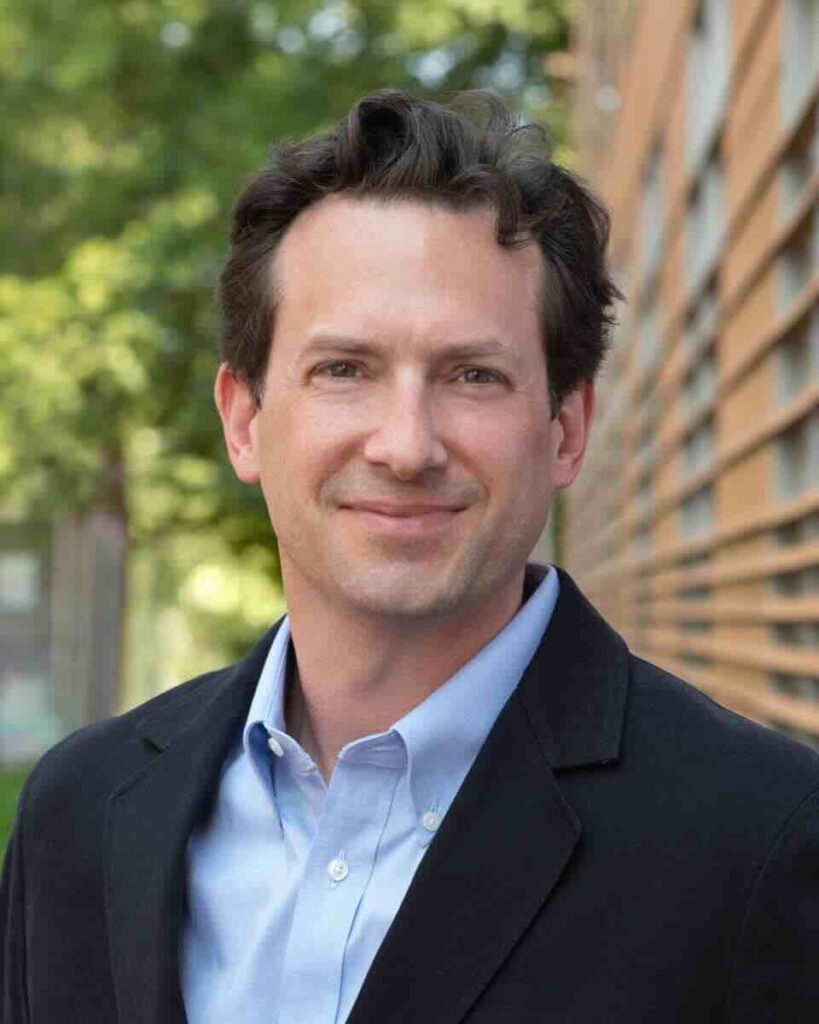
Nicholas Harkness is the Modern Korean Economy and Society Professor of Anthropology at Harvard University and Director of the Harvard Korea Institute. He specializes in the ethnographic study of communication and sociocultural semiosis (sign-processes). His research in South Korea has resulted in publications on various topics, including voice, language, music, religion, ritual, kinship, liquor, and the city of Seoul. His first book, Songs of Seoul: An Ethnography of Voice and Voicing in Christian South Korea (University of California Press, 2014), was awarded the Edward Sapir Book Prize by the Society for Linguistic Anthropology (Co-Winner, 2014, American Anthropological Association). Harkness’s second book is titled Glossolalia and the Problem of Language (University of Chicago Press, 2021). A number of his papers have been devoted to developing an anthropological approach to “qualia.” These papers incorporate the innovations of contemporary semiotics into the ethnographic theorization of sensuous social life.
The Work of Mountain and Water
10:45 a.m. – 12:10 p.m., Friday, February 6, 2026, Piper Auditorium
Speakers
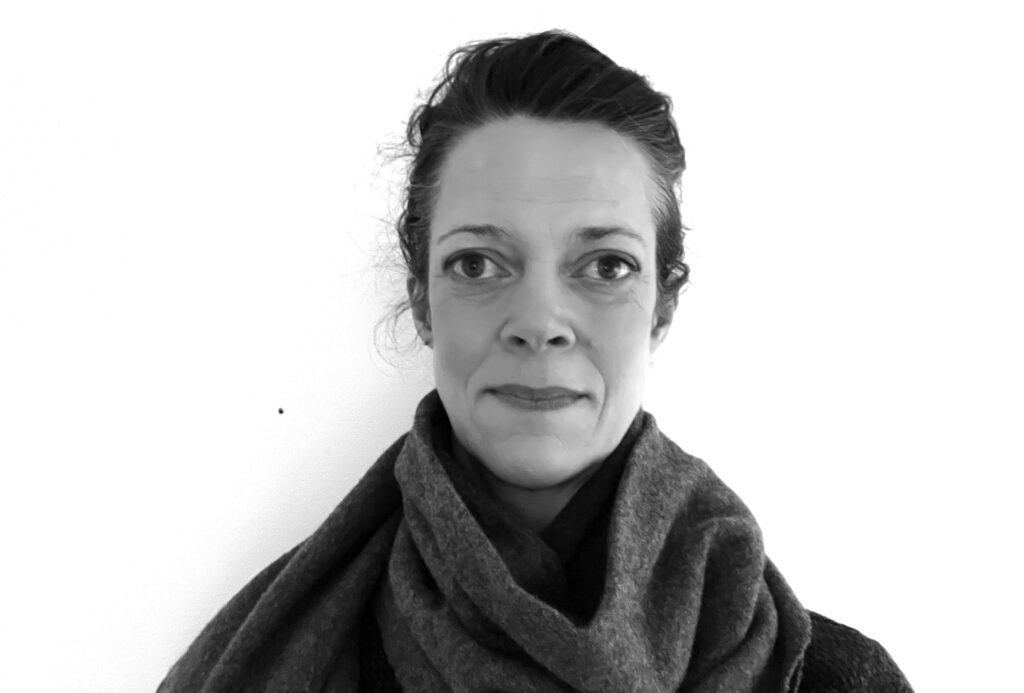
Heike Rahmann is a senior lecturer in landscape architecture at RMIT University. Her research and teaching focus on innovative design techniques and contemporary urbanism, combining theory, technology, and urban ecology. She explores these themes through critical writing and creative practice. Through her work, she has established strong partnerships with industry, community, and government bodies in Australia and Asia, especially in Japan, Korea, and Singapore. Heike has published widely, including three co-authored books: Tokyo Void: Possibilities in Absence (Jovis, 2014), Landscape Architecture and Digital Technologies (Routledge, 2016), and The Big Asian Book of Landscape Architecture (Jovis, 2020). For her most recent work, Landscape Architects as Changemakers (in collaboration with Jillian Walliss), she produced films and a bilateral exhibition that explores award-winning design practices in Australia and Japan. This research provides a deeper understanding of how landscape architects operate within their own contexts to achieve outcomes that positively contribute to environmental, economic, and cultural futures.
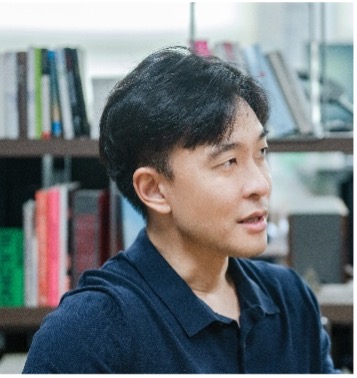
Youngmin Kim is a Professor in the Department of Landscape Architecture at the University of Seoul and the Design Director at VRION, a landscape architecture firm based in Korea. He studied architecture and landscape architecture at Seoul National University and earned his MLA from the Harvard University Graduate School of Design. Before joining the University of Seoul, he practiced with the SWA Group, an internationally renowned landscape architecture firm in the United States, and taught as a lecturer at the University of Southern California. He is also the author, editor, and translator of several books on landscape design and urbanism. Professor Kim has led major urban design and landscape projects in Korea, including the Paris Park Renovation, Gwanghwamun Square Renovation, and the Administrative City Central Plaza. His current research and practice focus on developing landscape-based solutions and strategies to mitigate the effects of climate change across multiple scales, with an emphasis on establishing quantitative methods to evaluate their effectiveness.

A leading voice in global climate resilience design, Thai landscape architect Kotchakorn Voraakhom uses design to combat the climate crisis in Southeast Asia’s dense urban context. She is the visionary behind LANDPROCESS and the Porous City Network, organizations dedicated to creating porous, water-absorbing public spaces that help cities adapt to extreme weather with vulnerable communities. Her transformative work includes Bangkok’s first climate-adaptive park, Chulalongkorn Centenary Park; the Thammasat Urban Rooftop Farm, Asia’s largest organic rooftop farm; the innovative Chao Phraya Sky Park; and the transformation of Thailand’s largest government complex with nature-based solutions.
Her global recognition includes a UN Climate Action Award, a spot on the TIME 100 Next list, and features in BBC 100 Women and Bloomberg Green 30. As a TED Fellow and a member of the Global Commission of World Economic Forum on Nature Positive Cities, she shares her expertise on landscape architecture for urban adaptability widely. Voraakhom holds a master’s from Harvard University and an honorary doctorate from the Norwegian University of Life Sciences. Her dedication reshapes urban landscapes to address both ecological survival and human dignity.
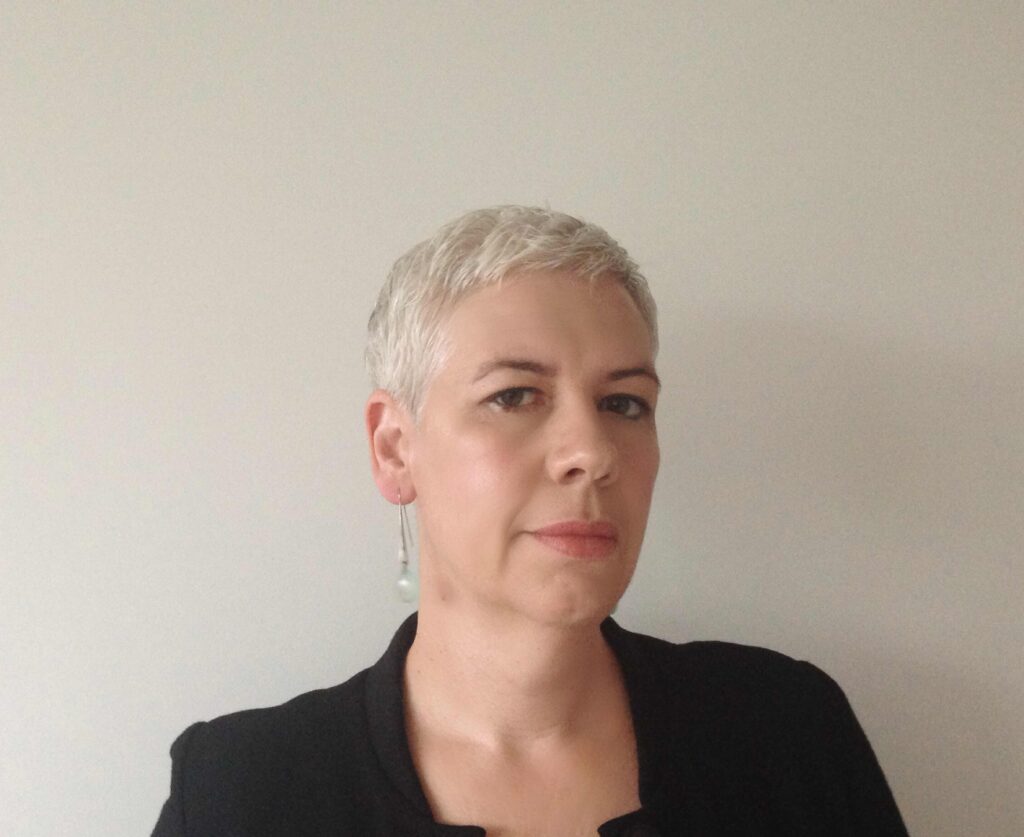
Jillian Walliss is an Associate Professor of Landscape Architecture and Associate Dean of Engagement at the Melbourne School of Design. She co-authored the book Landscape Architecture and Digital Technologies: Reconceptualising Design and Making (Routledge, 2015) with Dr. Heike Rahmann. This collaboration continued with the co-edited The Big Asian Book of Landscape Architecture (Jovis,2020), which is considered the first book to present a comprehensive account of contemporary Asian landscape architecture. Mixing theory, critical reflections, and design projects, it offers fresh perspectives for a discipline that has been dominated by North American and European influences. Jillian actively contributes to the broader design community, continually advancing the discourse on the cultural and technological dimensions of landscape architecture. She has curated several influential exhibitions, including Landscape Architects as Change Makers (2023) and The Square + The Park festival (2019), both of which examine the role of landscape architects in shaping public spaces and addressing cultural and ecological challenges.
Aesthetics of Sustainability
1:30 p.m. – 3:00 p.m., Friday, February 6, 2026, Piper Auditorium
Speakers

Myeong-Jun Lee is Associate Professor of Landscape Architecture at Hankyong National University. He received his PhD from Seoul National University. His research deals with the history, theory, and pedagogy of landscape design, with broader interests in landscape and visual culture. Early on, he examined how Western modes of representing landscape were introduced to Korea in the early twentieth century (“Nature as Spectacle: Photographic Representations of Nature in Early Twentieth-Century Korea,” History of Photography, 2015). He later analyzed shifts in ecological design thinking for urban parks in Seoul (“Ecological Design Strategies and Theory for Urban Parks in Seoul, 1990s–Present,” Land, 2021) and published on landscape pedagogy (Landscape Research, 2022). His more recent studies include “Design history: Constructing a Korean identity in New Gwanghwamun Square” (Habitat International, 2023) and “Trends and Issues of Garden City Municipal Projects in Korea” (Journal of the Korean Institute of Landscape Architecture, 2024, in Korean). He is also the author of Representing Landscape Architecture, a monograph in Korean on the history of design drawing (Hansoop, 2021), developed from his doctoral dissertation and later translated into Chinese by Southeast University Press.

Yu Han Goh is the director of design at Salad Dressing. She is a Malaysian-born landscape architect with a background in the arts and has been associated with the practice since its inception. Goh’s design philosophy is driven by her intrinsic interest in art history and Eastern literature. As a polymath, she inhabits the definition of a generalist, and flirts with concepts of a post-humanist-driven ecology through her work. She believes that any inequality in this period of time will be the main value change, from slavery, to the fight against sexism, to the current ecological struggle against speciesism.
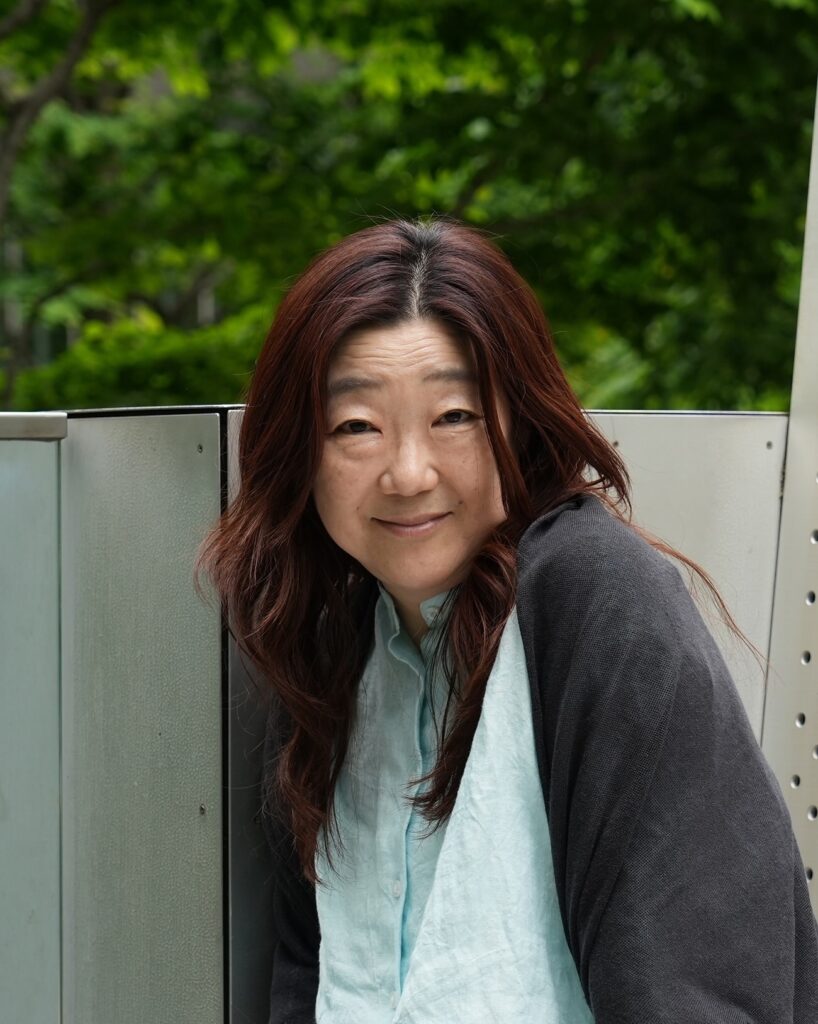
Chisa Toda is a co-founder of studio on site, a landscape architecture firm located in Tokyo, Japan. With over 30 years of experience, she has contributed to a diverse range of projects, spanning from intimate urban parks to large-scale regional restoration projects. Her portfolio includes award-winning works such as Shinagawa Central Garden, Nagano Prefectural Art Museum/Joyama Park, Tama New Town Regeneration, YKK Kurobe Center Park, and others. In her practice, Toda focuses on creating spaces that address the challenges of global climate change while revitalizing the natural environment. She seeks to portray the aesthetics of nature by embodying the distinct features of each site, fostering environments that enhance the significance of nature in people’s lives. Chisa has taught at Tama Art University, Keio University, and Kanto Gakuin University in Japan. She received an MLA from Harvard University and a BA from Tokyo Zokei University.
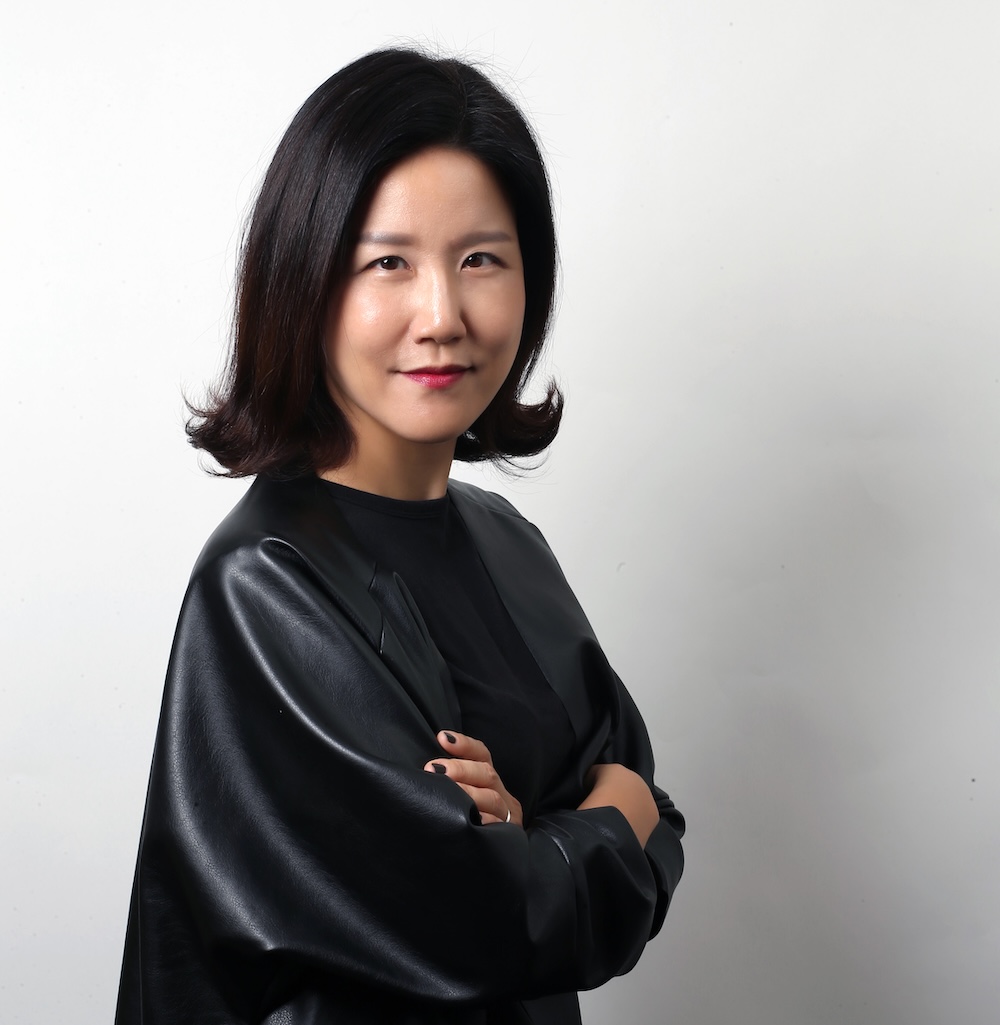
Jungyoon Kim, Associate Professor in Practice of Landscape Architecture at the GSD, is a practicing landscape architect, registered in the Netherlands and in the state of Massachusetts. She founded PARKKIM with Yoonjin Park in Rotterdam, upon their winning of the Taiwan Chichi Earthquake Memorial Design Competition (2004), and relocated to Seoul, Korea (2006). PARKKIM has completed projects of diverse scales and natures, ranging from corporate landscapes to civic venues. Current ongoing projects include the Suseongmot Lake Floating Stage in Daegu, Korea, for which PARKKIM won the international invited competition in 2024; the project is scheduled for completion in 2026.
Beyond Sansu, Sansui, Shanshui
3:15 p.m. – 4:40 p.m., Friday, February 6, 2026, Piper Auditorium
Speakers

Dong Wang is a Chinese National Registered Urban Planner and Senior Landscape Architect, leading the Eco-city Design Center at TURENSCAPE and serving as Deputy Director of the NbS Innovation Center at Peking University. He specializes in sponge city design, ecological planning, and nature-based solutions, with a portfolio spanning over 100 projects across China, Southeast Asia, the Middle East, and Europe—including internationally acclaimed works such as Benjakitti Forest Park in Bangkok and Beijing’s Ecological Security Pattern Planning. His practice integrates research, policy input, and ecological design, and has been recognized with major awards including the ASLA Honor Award, WAF Landscape of the Year, and the UIA Award. He is a frequent speaker at international forums and contributes to Chinese ecological restoration standards and publications.
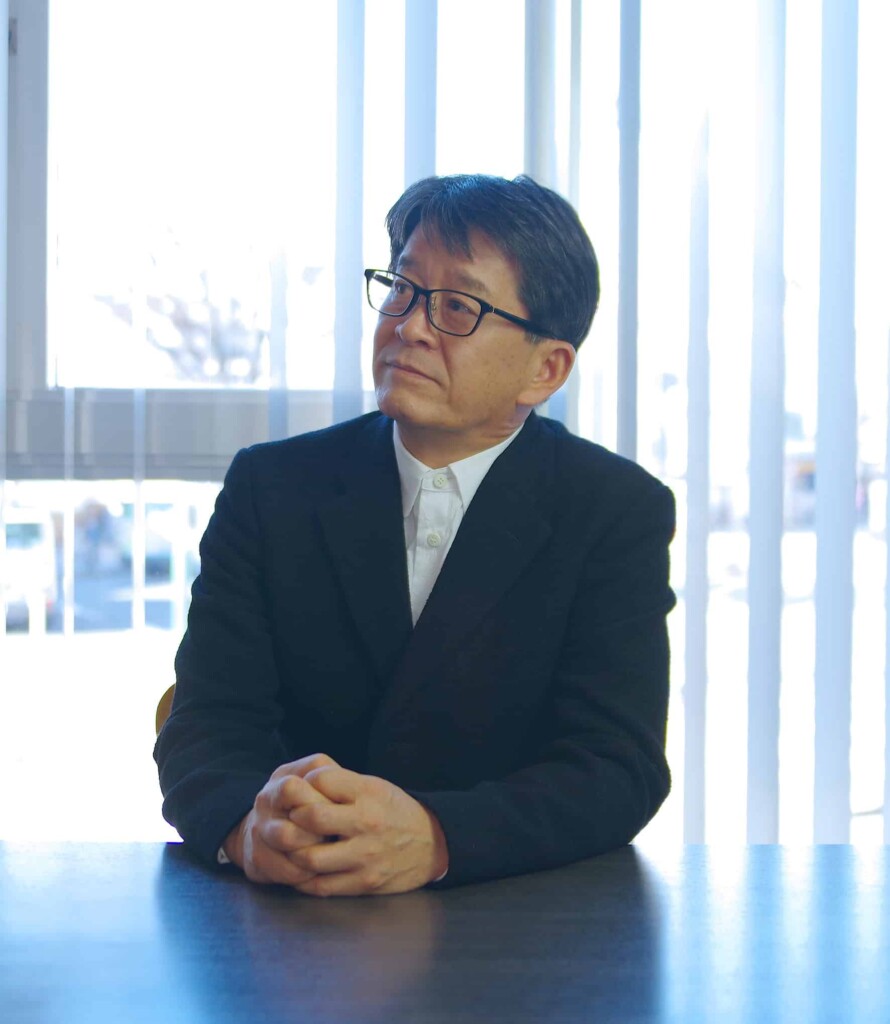
Shunsaku Miyagi is a founding partner of PLACEMEDIA
, an award-winning landscape and urban design firm based in Tokyo and Kyoto, Japan. He has worked on projects of various scales and locations both domestic and overseas for the past 35 years, ranging from small-scale housing complexes to large-scale urban redevelopment, and even resort development that harmoniously preserves and enhances the value of historic and natural environments. In particular, the highly acclaimed works he has worked on in collaboration with renowned Japanese architects such as Yoshio Taniguchi, Kengo Kuma and others are said to have contributed greatly to acknowledging the status of landscape architects in Japan.
Miyagi holds a Master of Landscape Architecture from Harvard University Graduate School of Design and a PhD in Urban Design Studies from Kyoto University. His extensive academic career includes appointments of Associate Professor in Landscape Architecture at Chiba University and Professor in Urban Design at The University of Tokyo. He is currently teaching an option studio at the GSD.
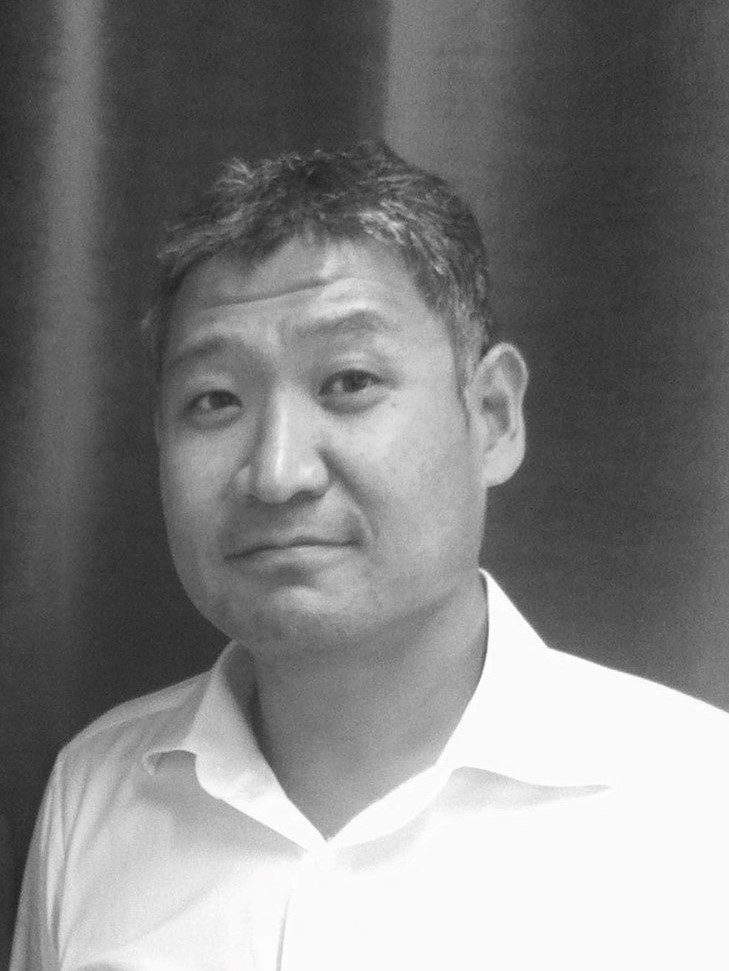
Yoonjin Park is the Founding principal of PARKKIM. His book, Alternative Nature (2016), co-authored with Jungyoon Kim, is a compilation of articles published by the two practicing landscape architects in various media since 2001. The term “alternative nature” was first presented in their essay “Gangnam Alternative Nature: the experience of nature without parks,” published in Asian Alterity (ed. William Lim, Singapore: 2007), rethinking the concept “what is natural?” within the context of contemporary East Asian urbanism. Park has been invited for lectures and colloquiums by international institutions such as Melbourne University, Shih-Chien University, and Harvard University. He received his MLA from the Harvard University Graduate School of Design.

Gary Hilderbrand, FASLA, FAAR, is the Peter Louis Hornbeck Professor in Practice and Chair of the Department of Landscape Architecture, Harvard Graduate School of Design. He is also principal and founder of Reed Hilderbrand Landscape Architects. Hilderbrand is a fellow and resident of the American Academy in Rome. He received the Design Medal from ASLA in 2017. His widely acclaimed publications include The Miller Garden: Icon of Modernism (Spacemaker Press, 1999) and Visible | Invisible: Landscape Works of Reed Hilderbrand (Metropolis Books, 2013).
Student Workshops
On Thursday, February 5, 2026, from 1:00 p.m. to 5:00 p.m., workshops will be held for graduate students with six practitioners who are speaking at the conference. The workshops will also feature the following alumni of the MLA program, who will be paired with the practitioners to serve as session leaders for the workshops. Please note that the student workshops are not open to the public.
Workshop Participants
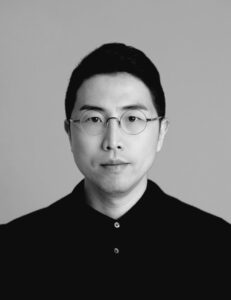
Jonghyun Baek is the co-founder and CEO of HEA. He studied landscape architecture and urban design at Seoul National University, and landscape architecture at Harvard University.
Beyond landscape design, his work spans design, systems thinking, and business model development. Drawing on these diverse interests and experiences, he pursues the creation of new, nature-based spatial values and the realization of sustainable social value through landscape architecture. At HEA, Jonghyun Baek is concentrating on creating a sustainable social impact through landscape practices and has led over 300 landscape design projects in South Korea. His representative projects include Namsan Sky Forest Trail, Daeyupyeong Park, Village de Ananti, and Seongmunan Country Club. He is also a co-founder of Jayeongamgak(Sense of Nature in English), which began as a landscape design group and has since evolved into a shared brand encompassing four companies: HEA, Openness Studio, Konkuk Landscape Architecture, and Sikmulgamgak (Sense of Plant in English). Jonghyun will be paired with Yoonjin Park for this workshop.
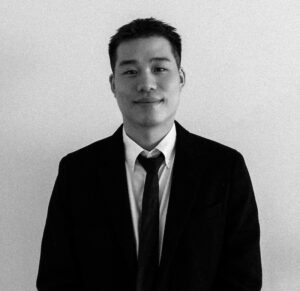
Ken Chongsuwat is an Adjunct Lecturer at the International Program in Design and Architecture (INDA), Chulalongkorn University, and a Director at A-Seven in Bangkok, Thailand. He is a registered Landscape Architect in the State of New York.
His work and research examine the transformation of underutilized public projects and infrastructure into ecological and civic landscapes, particularly within rapidly urbanizing Southeast Asian contexts. At INDA, he leads upper-year design studios and coordinates lecture courses at the intersection of architecture, landscape, and urbanism, emphasizing research-driven design, public engagement, and interdisciplinary collaboration .
Prior to joining INDA, he practiced in New York City with OMA, AECOM, and BIG, contributing to Rebuild by Design initiatives in Hoboken and Lower Manhattan. He holds a Bachelor of Architecture from INDA and a Master of Landscape Architecture from the Harvard Graduate School of Design, where he received the Norman T. Newton Award. Ken Chongsuwat will be paired with Kotchakorn Voraakhom for this workshop.
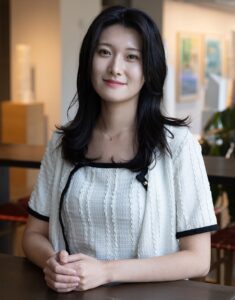
Esther Kim is a Korean landscape and architectural designer and educator whose work explores the intersection of civic-scaled, context-responsive design and waterfront infrastructure. Her work positions architecture and landscape as mediators between environmental systems, urban form, and collective experience, examining how water-based systems can operate as sensorial and civic frameworks for public engagement.
Kim holds dual degrees in Master of Architecture and Master in Landscape Architecture from the Harvard Graduate School of Design, and a Bachelor of Fine Arts in Architecture with Distinction from the Maryland Institute College of Art. She is currently practicing in New York as a designer at Kohn Pedersen Fox Associates (KPF). Her professional experience includes work at REX, Grimshaw, MIT Civic Data Design Lab, LOLA Landscape Architects, and PARKKIM, where she collaborated on projects centered on water management and adaptive landscape strategies, including the winning competition proposal for the Suseongmot Floating Stage and New Hongik Campus. Esther will be paired with Shunsaku Miyagi of this workshop.
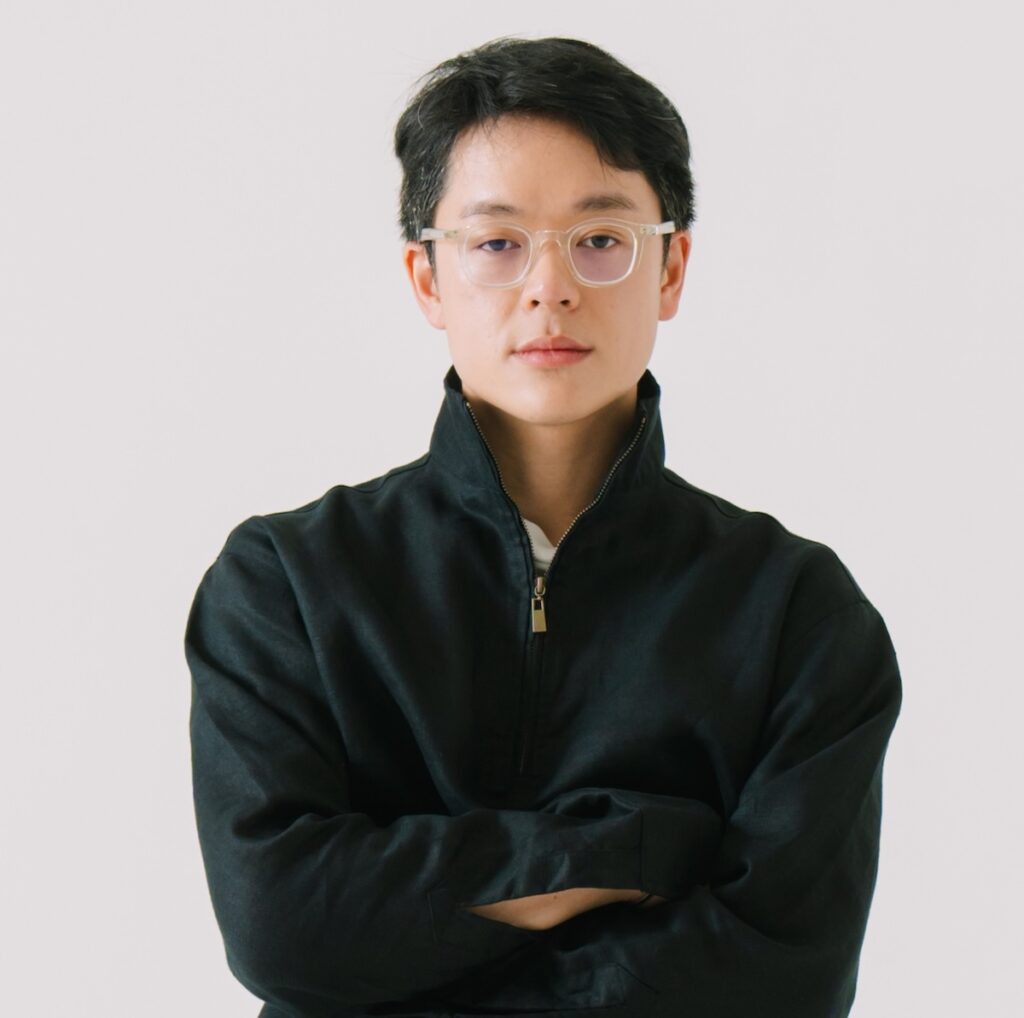
Parawee Wachirabuntoon has been an Associate at Michael Van Valkenburgh Associates since 2019. He holds a Master of Landscape Architecture with distinction from Harvard University’s Graduate School of Design and a Bachelor of Science in Architectural Design from Chulalongkorn University in Bangkok. He previously practiced at Landscape Architects of Bangkok.
In practice, Parawee contributes to detailed design development across projects, with a focus on spatial systems, constructability, and digital workflows. He develops and applies advanced 3D modeling processes to support iterative design studies and analysis. His work synthesizes input across multiple disciplines through a systems-based approach that considers conditions below ground, at grade, and above ground to optimize overall site performance. Parawee will be paired with Yu Han Goh for this workshop.
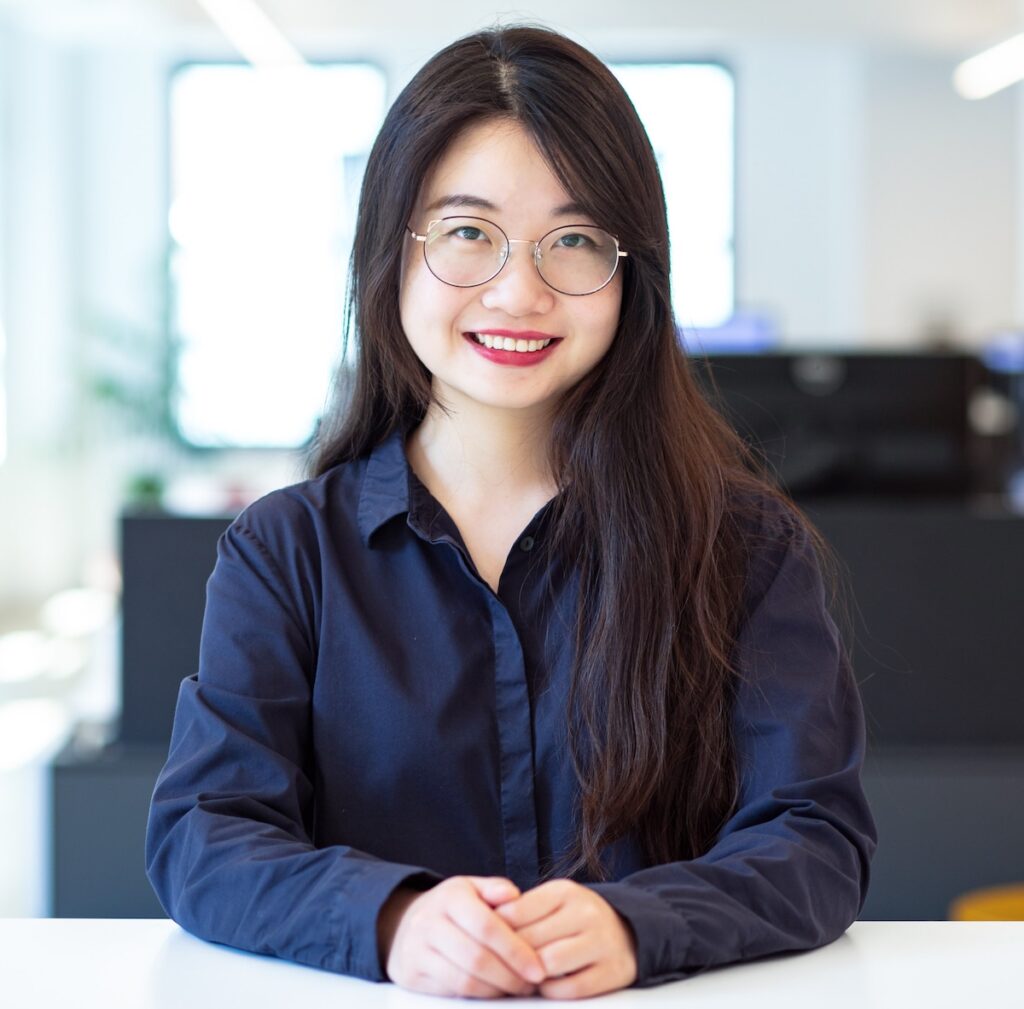
Liwei Shen, ASLA, LEED AP, is a professional landscape architect at Field Operations. She holds a Master of Landscape Architecture with distinction from the Harvard Graduate School of Design and a Bachelor of Architecture with distinction from Huazhong University of Science and Technology. Shen previously practiced at Sasaki. Her work focuses on campus planning and public landscape design.
As the 2022 LAF Olmsted Scholar from Harvard University, Shen believes that landscape architecture should engage global dynamics and risks while precisely representing local cultures. Her honors include the LA+ EXOTIQUE First Prize, IDA Gold Award, GSD Graduate Thesis Prize, Peter Walker Fellowship, the Boston Society of Landscape Architecture (BSLA) Excellence Award, and the World Landscape Architecture (WLA) Merit Award. Liwei Shen will be paired with Dong Wang for this workshop.
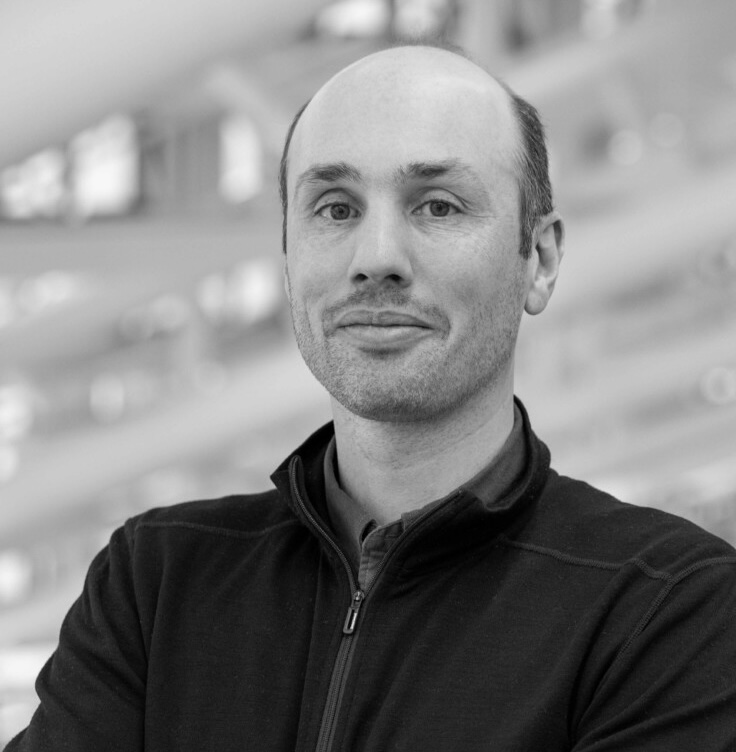
Max is the Visiting Lecturer in Plant Science and Forest Ecology. He is an ecologist specializing in urban ecosystems and applied research. Max maintains a research program with the USDA Forest Service’s Northern Research Station that aims to advance evidence- and community-based strategies for natural resource and green infrastructure planning, design, and management in cities. Specific research topics include urban and climate adaptative responses in plant populations and communities, forest assisted migration in large forest parks, urban restoration techniques, green infrastructure performance, global urban biodiversity trends, and community-based science and workforce training in underserved neighborhoods. Max’s research has been published widely and recognized with numerous grants and awards, including the US Forest Service Chief’s Award for his work in community-based restoration at the Stillmeadow PeacePark.
Max holds a PhD in Ecology and Evolution from Rutgers University, a Master of Environmental Management from the Yale School of the Environment, and a Bachelor of Arts in Environmental Studies and Psychology from Wesleyan University, where he was a Henry David Thoreau Scholar.
Ryota Sunakawa will be paired with Chisa Toda for this workshop.
Organizers
Jungyoon Kim, Associate Professor in Practice of Landscape Architecture at the GSD, is a practicing landscape architect, registered in the Netherlands and in the state of Massachusetts. She founded PARKKIM with Yoonjin Park in Rotterdam, upon their winning of the Taiwan Chichi Earthquake Memorial Design Competition (2004), and relocated to Seoul, Korea (2006). PARKKIM has completed projects of diverse scales and natures, ranging from corporate landscapes to civic venues. Current ongoing projects include the Suseongmot Lake Floating Stage in Daegu, Korea, for which PARKKIM won the international invited competition in 2024; the project is scheduled for completion in 2026.

Nicholas Harkness is the Director of the Korea Institute and Modern Korean Economy and Society Professor of Anthropology at Harvard University. He specializes in the ethnographic study of communication and sociocultural semiosis (sign-processes). His research in South Korea has resulted in publications on various topics, including voice, language, music, religion, ritual, kinship, liquor, and the city of Seoul. His first book, Songs of Seoul: An Ethnography of Voice and Voicing in Christian South Korea (University of California Press, 2014), was awarded the Edward Sapir Book Prize by the Society for Linguistic Anthropology (Co-Winner, 2014, American Anthropological Association). Harkness’s second book is titled Glossolalia and the Problem of Language (University of Chicago Press, 2021). A number of his papers have been devoted to developing an anthropological approach to “qualia.” These papers incorporate the innovations of contemporary semiotics into the ethnographic theorization of sensuous social life.



Sponsors
This conference and affiliated exhibition are organized by the Graduate School of Design and the Korea Institute, Harvard University. They are also supported by the Harvard University Asia Center, the Southeast Asia Initiative, the Edwin O. Reischauer Institute of Japanese Studies, the Fairbank Center for Chinese Studies, the Harvard-Yenching Institute, the Kim Koo Forum at the Korea Institute, and the Weatherhead Center for International Affairs. The project is also supported by Daniel Urban Kiley Exhibition Fund at the GSD.




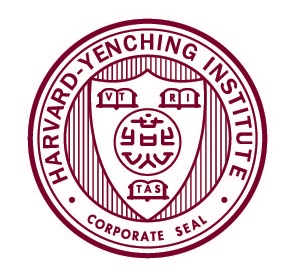
Harvard University welcomes individuals with disabilities to participate in its programs and activities. If you would like to request accommodations or have questions about the physical access provided, please contact the Public Programs Office at (617) 496-2414 or [email protected] in advance of your participation or visit. Requests for American Sign Language interpreters and/or CART providers should be made at least two weeks in advance. Please note that the University will make every effort to secure services, but that services are subject to availability.
#GSDEVENTS
